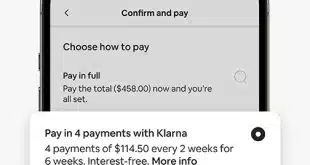n
USAA, the financial institution that pioneered remote deposit capture, is suing Mitek Systems Inc., a leading vendor of software for the mobile version of RDC, claiming that Mitek stole its trade secrets and technology.
n
San Antonio, Texas-based USAA is seeking a declaratory judgment that it does not infringe on five Mitek patents and that they are unenforceable against USAA. The company also accuses Mitek of misappropriation of trade secrets, breach of contract, fraud, and unjust enrichment. USAA further seeks an injunction that would ban Mitek from using USAA’s proprietary information and technology, and unspecified damages in addition to a recovery of an alleged $381,000 overpayment to Mitek.
n
In a statement, Mitek Systems president and chief executive James DeBello said, “It’s unfortunate when business negotiations break down; however, Mitek is the proven leader in mobile imaging software, as evidenced by the numerous U.S. patents we have been awarded. We believe these claims are without merit and we intend to vigorously defend our intellectual-property rights, as necessary.” A spokesperson for San Diego-based Mitek said the company would not comment further.
n
USAA, which serves military members and their families, filed the suit March 29 in U.S. District Court in San Antonio. Shares of Mitek stock fell 11% Tuesday in an apparent investor reaction as word of the lawsuit spread.
n
According to USAA’s complaint, the immediate events leading to the lawsuit began March 21, when a Mitek vice president sent an e-mail to USAA saying the bank was infringing on its patents related to its mobile remote deposit capture product called Mobile Deposit. That e-mail said USAA was entitled to use Mitek software for processing transactions, but “you don't have a license to use our IP for Mobile Deposit,” USAA’s complaint says. (In mobile RDC, a consumer snaps a photo of the front and back of a check with a smart phone’s camera and uploads the images for deposit through a mobile-banking app.)
n
According to USAA, the threats escalated over the next eight days, culminating in a March 28 letter from Mitek’s chief financial officer “stating that USAA has not licensed Mitek’s Mobile Deposit IP and demanding that USAA cease all use of Mitek’s software.”
n
The suit says the two companies’ relationship began back in 2006, when USAA Federal Savings Bank, which at the time had no branches and today has only a few, was developing RDC products to serve its widely dispersed customer base. USAA selected Mitek from a field of software companies that banks used for commercial processing, through batch systems, of the courtesy amount on a check (or CAR, the numeric value filled in by the payer), and the check’s legal amount (or LAR, the value written in longhand by the payer). USAA says it used Mitek’s software for the “limited purpose” of reading CAR and LAR values.
n
Mitek “had no prior knowledge of any real-time system or method that allowed consumers to remotely deposit individual (one-by-one) checks using a general-purpose and/or portable imaging device,” says USAA, which filed for the first of its RDC patents in December 2005. USAA says it told Mitek of its interest in using Mitek’s software “as a component of USAA’s pioneering system and method.”
n
USAA says Mitek signed three confidentiality agreements as its RDC program developed. The bank launched its Deposit@Home product in the fall of 2006, a product that allowed customers to scan checks on common scanners and upload the images for deposit through USAA’s online-banking service. Working with Mitek, USAA continued to develop the program in 2007 and “made a system for using a portable device (digital camera) for capturing a check image, and thereafter processing the check from the captured image,” the suit says.
n
But in January 2008, Mitek filed a provisional application with the U.S. Patent and Trademark Office for what USAA says was “a method for document image capture on a mobile communication device, submitting the image to a server, and processing the image to create a bi-tonal image of the document for data extraction,” according to the suit. Mitek, however, would not have had the information it used in that application except for its “improper use and disclosure of USAA confidential information, including information related to the RDC invention,” the suit says.
n
USAA says that “to its surprise,” Mitek without authorization from USAA announced its mobile capture solution in its annual report for the fiscal year ended September 30, 2008. USAA unveiled its Deposit@Mobile service for Apple Inc.’s iPhone in August 2009.
n
USAA’s claim that it was overcharged $381,000 by Mitek is based on a dispute over the amount of transactions processed and the resulting revenue owed.
nn





